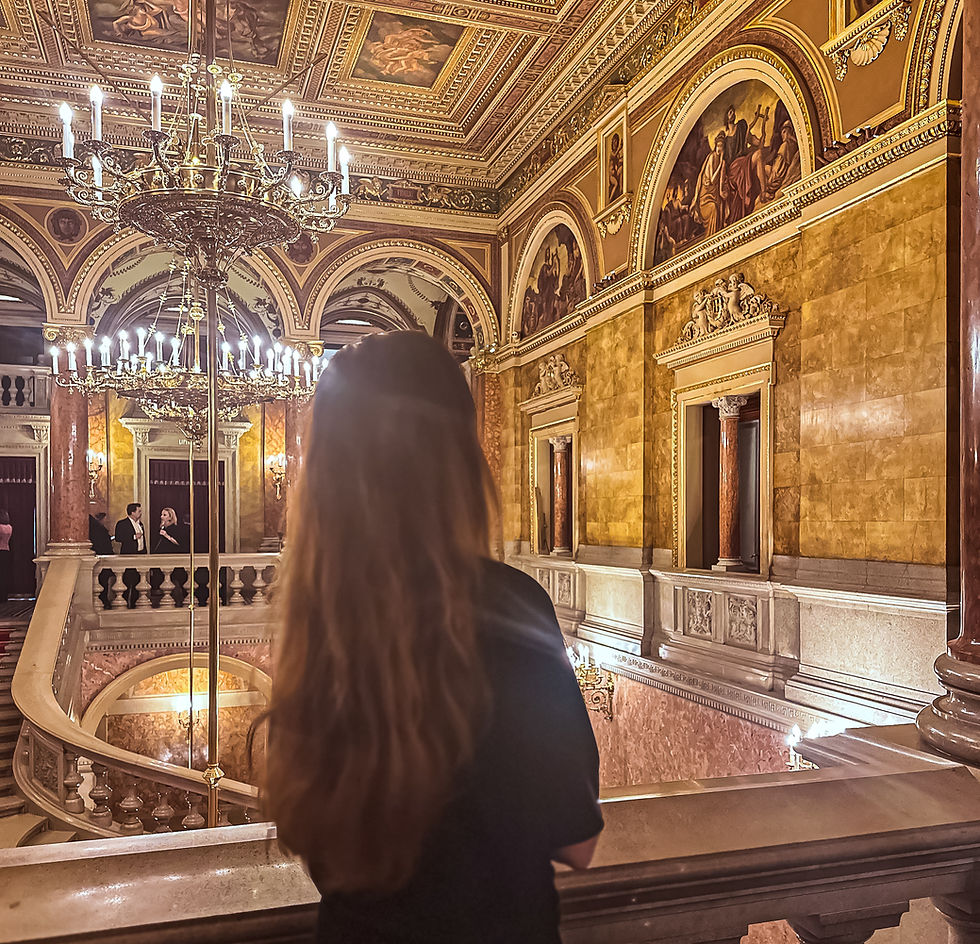Just a Desk: When Art Forgets the Heart
- Krisztina
- Apr 24
- 3 min read
Updated: Apr 26
Reflections on the Disconnection of Modern Art
I’ve been thinking a lot about the kind of art that stays with us—the kind that doesn’t just sit on a wall but touches us deep in our soul. And in contrast… the kind that leaves us cold, confused, or even irritated. I remember when some time ago, I walked into one of Europe’s most celebrated art museums with the hope of being moved, and instead found myself again in an unexpected reflection on what we call art today.
So there I stood, in one of the most respected Fine Art Museums in Europe—Basel, no less. The building was pristine and flooded with light, and I was ready to be moved, to be silenced by a painting that speaks louder than any words. But what I found instead was a desk.
Yes, a desk. Plain. Unremarkable. No history. No poetry. Just a desk, displayed as art. Not Hemingway’s writing table or Kafka’s workbench. It was not even an antique one with wood grains whispering forgotten stories. Just a desk — something that could’ve been wheeled in from IKEA. Okay, displayed with a similarly plain IKEA chair.
I stood before it, trying to feel something—anything—beyond irritation. I wanted to give it a chance. I tried to be open-minded, enlightened. But all I could think was: Is this for real?!
Modern art—especially conceptual art—has taken a turn that often feels like it’s mocking us, the viewer. Sometimes it whispers, “If you don’t get this, the problem is you.” But what if the problem is that there is nothing to get? Many times, I do have a feeling that modern art is just pretentious. Plain simple.
But this isn't about rejecting all modern art. Not at all. Some of it is deeply powerful. Think of Käthe Kollwitz. Francis Bacon. Even Rothko—if you stand long enough in front of those vast, vibrating colour fields, something might happen in your chest. But then came a shift, perhaps around the time art became more about shock than soul. When the artist had to explain his art, and the explanation became more significant than the piece itself.

The banana taped to the wall. The unmade bed. The urinal turned upside down and titled “Fountain.” It’s as if art, in certain circles, became a kind of inside joke. A provocation. A performance of meaninglessness in a world that already feels increasingly absurd.
And the irony? These pieces often sell for obscene sums of money. As if we're all participating in a massive emperor’s-new-clothes performance—too afraid to say: “Wait… is this really art? Is it just me? Am I just not smart enough to understand? Have I missed the point?”
But what if I haven’t missed the point? What if the point is precisely this sense of absurdity? Maybe the desk reflects our times, and us, human beings — it reflects a world where identity is fragmented, where identity crisis is as common as morning coffee, and we’re more fluent in branding ourselves than in understanding who we are. Where truth is slippery, attention is currency, and meaning is elusive. Maybe art is no longer here to soothe or inspire, but to unsettle and mirror our own disconnection.
Still… I miss the soul from modern art. There is no catharsis in it. The cathartic experience Plato spoke of. Art should elevate us; it should feel like a divine release, making us better. It should dust away everyday life from our soul (Picasso). True art … that moment when something inside you finally softens, breaks, or heals – simply by beholding beauty, tragedy, or profound human truth. Plato believed art could awaken something noble within us. But where, I ask, where is that cathartic moment when I am standing in front of a desk or a banana glued to the wall? I don’t want to be tricked into feeling clever. I want to be transformed. I want to be moved. I want to feel the weight of a painting settle into my bones, the way it did when I stood before Munkácsy’s The Condemned Cell, where time stood still and every brushstroke carried the echo of a man’s final breath.
And maybe that’s my quiet rebellion: to still seek art that speaks in the language of the heart, not just the mind. To stand before the old masters and whisper, "Thank you." And to walk past the desk, unbothered, with my soul intact.
Krisztina Kovacs / Evolve with Krisztina, 2025. All rights reserved.





Comments